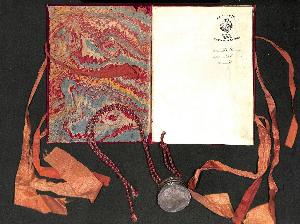Giovanni Battista Martini
Giovanni Battista Martini;Giovanni Battista Mattei
Place: Bologna
Born: 1706
Death: 1784
Biography:
Giovanni Battista Martini, also known as Padre Martini, was a renowned Italian Conventual Franciscan friar, musician, composer, and music historian. Born in Bologna, Italy in 1706, he played a significant role in the development of music during his time.
Early Life and Education
Giovanni Battista Martini received his early education in classics from the priests of the Oratory of Saint Philip Neri. He later learned singing, harpsichord playing, and counterpoint from various musicians, including Padre Pradieri, Antonio Riccieri, and Giacomo Antonio Perti. Martini's father, Antonio Maria Martini, a violinist, also taught him the elements of music and the violin.
Career and Compositions
Martini's compositions attracted attention at a young age, and he received the appointment of chapel-master at the Basilica of San Francesco in Bologna in 1725. He established a composition school, where many well-known musicians received their education, including Wolfgang Amadeus Mozart. Martini was a zealous collector of musical literature and possessed an extensive musical library, which included over 17,000 volumes. Some of his notable compositions include Litaniae atque antiphonae finales B. V. Mariae, Sonate d'intavolalura, and Storia della musica. Martini's most important works are his Storia della musica (Bologna, 1757–1781) and his Esemplare di contrappunto (Bologna, 1774–1775).
Legacy and Impact
Giovanni Battista Martini's legacy extends beyond his compositions. He was a mentor to many famous musicians, including Wolfgang Amadeus Mozart, Johann Christian Bach, and Giovanni Battista Cirri. Martini's preference for the practices of the earlier Roman school of composition has had a lasting impact on the development of music.
- Visit https://Wikioo.org/@/Giovanni-Battista-Martini to learn more about Giovanni Battista Martini and his compositions.
- Explore the Museo Internazionale della Musica in Bologna, Italy, which houses a significant portion of Martini's musical library.
- Read more about Martini's life and works on https://en.wikipedia.org/wiki/Giovanni_Battista_Martini.
figures like Martini have played a crucial role in shaping the music of their time, and their legacy continues to influence musicians today. As a leading musician and composer of 18th century Italy, Giovanni Battista Martini's contributions to the development of music are undeniable.









